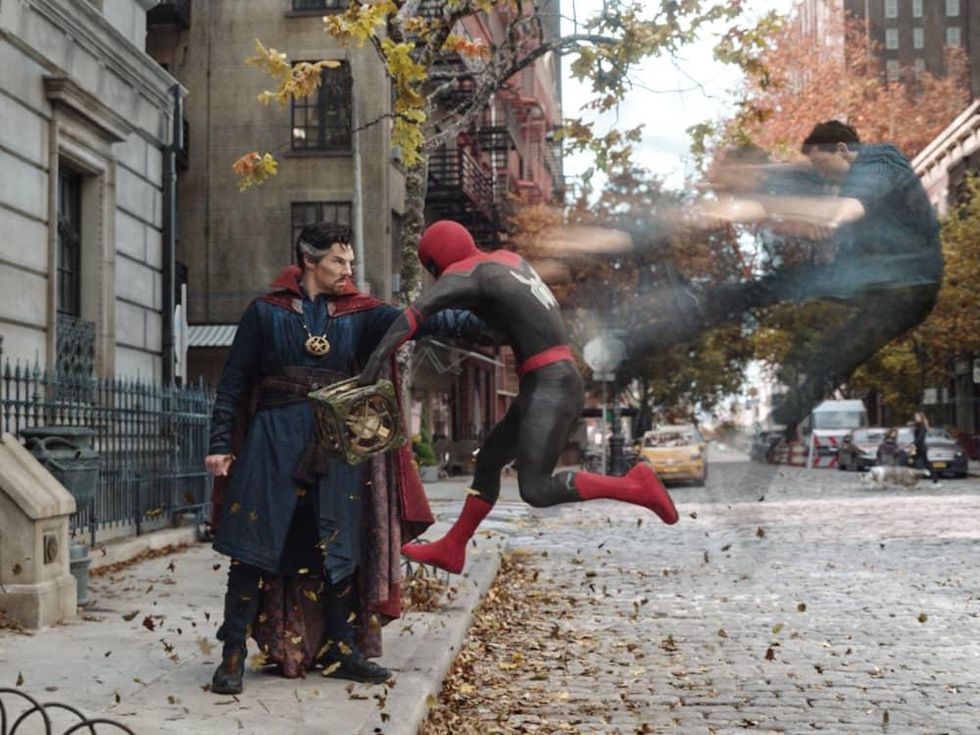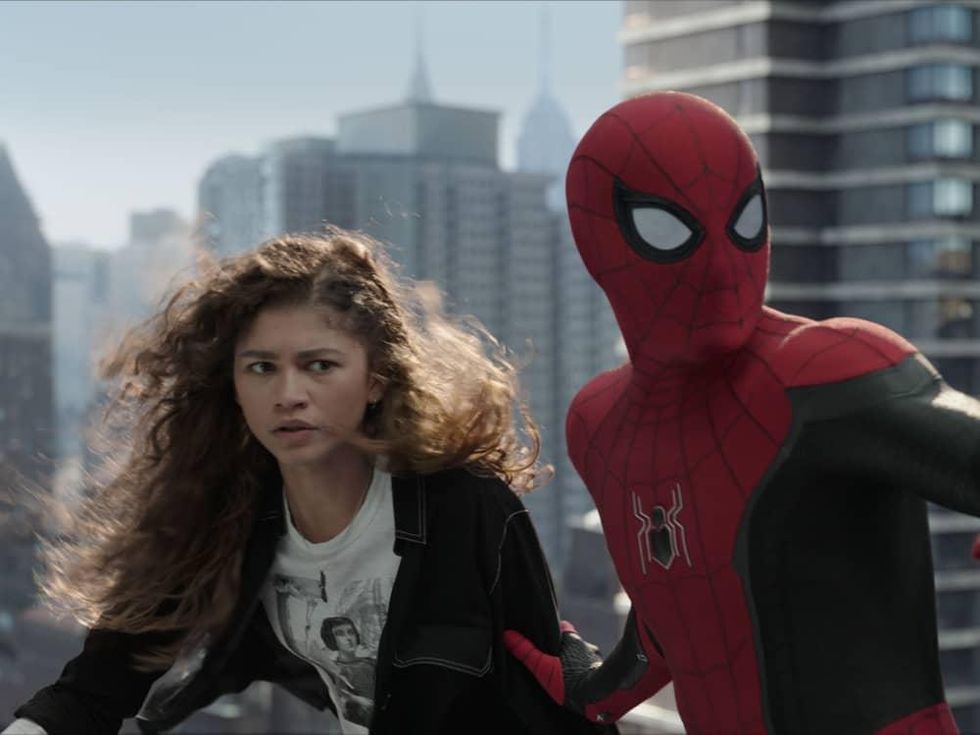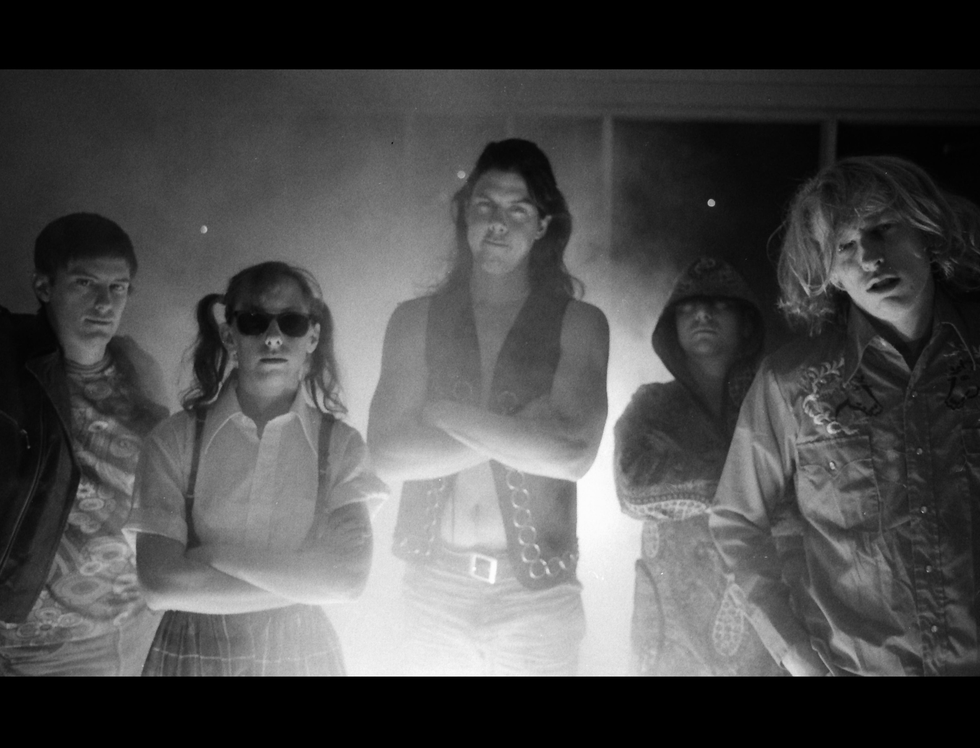Movie Review
Spider-Man: No Way Home brings emotion and multiverse into MCU
The evolution of Spider-Man as a movie character has been one of the more interesting things to watch in the superhero era. Starting in 2002 with Tobey Maguire, who made three films, and followed by two films with Andrew Garfield and now three films with Tom Holland (not to mention a highly popular animated film), the character has endured because of Peter Parker’s innate relatability as a high school kid with newfound powers.
The latest film, Spider-Man: No Way Home, has a lot of stakes to it, serving as not just a continuation of Holland’s version of the character, but also moving forward the Marvel Cinematic Universe, which Spider-Man officially joined in 2016’s Captain America: Civil War. Here, he joins forces with another Marvel character, Doctor Strange (Benedict Cumberbatch), after the reveal of his true identity has made life for him and the people he loves tough to handle.
Peter asks Doctor Strange to conjure a spell that would make people forget who he was, but when he requests that loved ones like his girlfriend MJ (Zendaya), best friend Ned (Jacob Batalon), and Aunt May (Marisa Tomei) be exempt from the spell while Strange is doing it, things start to go awry. Soon, villains from previous Spider-Man franchises — like Doc Ock (Alfred Molina), Green Goblin (Willem Dafoe), and Electro (Jamie Foxx) — start showing up, an indication that the spell has made multiple universes collide.
Directed by Jon Watts and written by Chris McKenna and Erik Sommers, the team behind all three of the latest Spider-Man movies, the film feels both big and small at the same time, and definitely smaller than the trailer seemed to promise. That’s not a knock, but rather a hearty endorsement, as the focus on the relationships Peter has with MJ, Ned, Aunt May, and others ends up being just as important as any of the CGI-filled fights.
In fact, moviegoers may find themselves surprised at how emotional the movie becomes. The filmmakers deliver a lot of fan service, especially for anyone who’s watched all eight Spider-Man films, but they do so in a way that never feels cheap or unearned. Peter also faces a level of personal angst that he had not reached in his previous MCU appearances, giving Holland plenty of opportunities to show off his acting abilities.
There are a few nitpicks to be had with the story in general (how does J.K. Simmons’ J. Jonah Jameson, who’s only appeared in the original Spider-Man trilogy, exist in this universe prior to Strange’s spell?), but as with all MCU films, it’s better not to over-analyze story choices. Having multiple villains to face ends up being less about Spider-Man being able to defeat them all and more about establishing once and for all the type of person that Peter Parker is.
While Holland has been very enjoyable in the role in previous films, he hadn’t been asked to stretch much as an actor. This film shows off a different side, and he handles it exceedingly well. Zendaya makes her part feel bigger than it actually is and demonstrates why she’s a star in the process. While it’s great to see all of the villains again, only Dafoe comes off as truly menacing.
Spider-Man: No Way Home may not be as thrilling as some fans hope, but it more than makes up for any lack with a story that stays true to who Spider-Man/Peter Parker is. He can be a superhero while still maintaining the bonds he holds near and dear.
---
Spider-Man: No Way Home is showing in theaters now.





 Butthole Surfers are a chaotic band and surprisingly lucid documentary subjects. Photo by Pat Blashil
Butthole Surfers are a chaotic band and surprisingly lucid documentary subjects. Photo by Pat Blashil